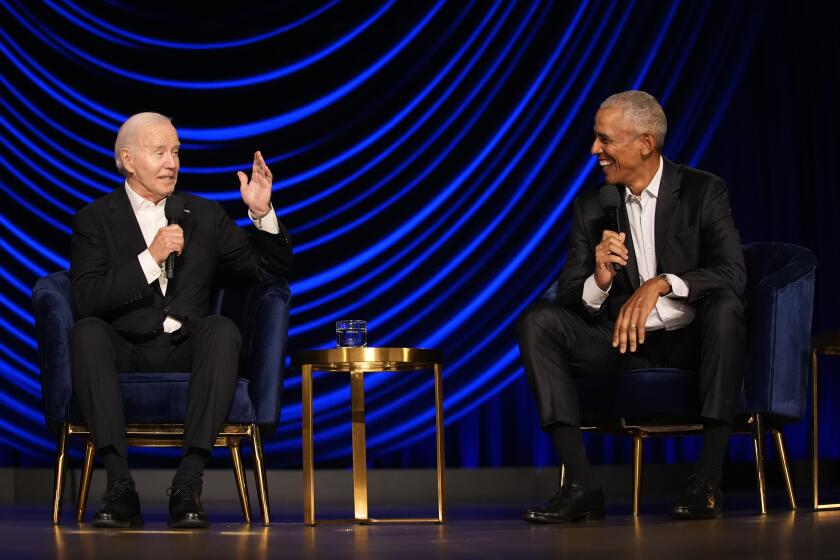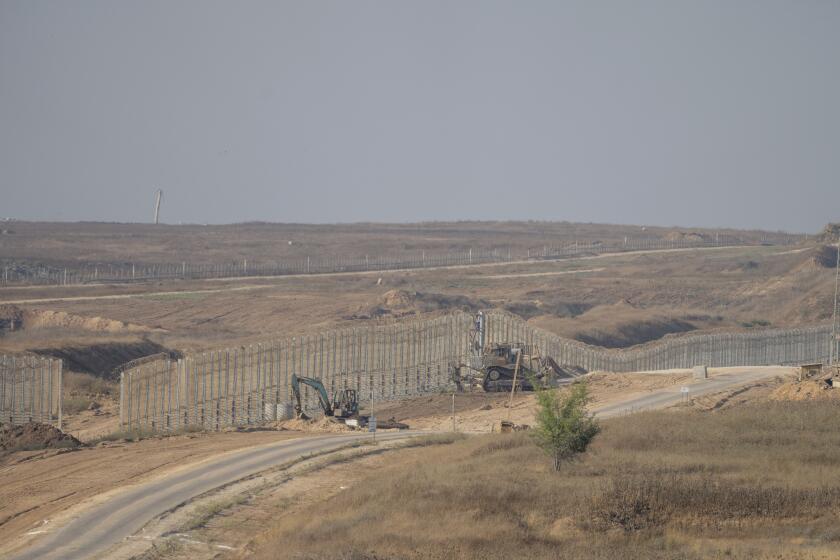U.S. Firms Tap Russia’s Human Resources
From an 18th century manor house, Nikolai Plate presides over vast ranks of once-privileged scientists, the brains behind the vaunted Soviet military machine and space program.
The scientists have fallen on hard times in the new Russia. But some are getting back on their feet because of a new paying customer--Western companies eager to tap into the considerable expertise of Russian researchers.
“Come and deal with us as you would with the University of Wisconsin,” Plate said. “We can do everything that the University of Wisconsin can do, but we can do it cheaper.”
As secretary-general of the Academy of Sciences, Plate is pushing its hundreds of research institutes to do more to attract commercial contracts to replace the loss of generous government subsidies.
During the Soviet era, scientists were a privileged elite. Now, their state salaries are down to the equivalent of about $100 a month, which is below the national average and a paltry sum in expensive Moscow. Many have abandoned their labs in search of better-paying jobs at home and abroad.
The ability to adapt their scientific work for commercial needs is creating haves and have-nots among the academy’s remaining 65,000 researchers. While the percentage of scientists who have benefited from foreign money is unknown and still small, it clearly is growing.
*
Western governments have financed some projects to keep Russian nuclear scientists from selling their know-how to anti-Western states such as Libya and Iran. But as long as Russia’s economy remains weak, the best answer may lie with companies such as International Specialty Products of Wayne, N.J., which has hired several teams of Russian scientists.
“They are not inherently better or worse,” said Bob Mininni, the company’s vice president for research and development. “The main thing is that you have access to world-class scientists. In the U.S., they are already tied up, but in Russia, there’s a chance to link up with them.
“Our intent is to take some of their technology, mix it up with ours, and have it show up in one of our products,” said Mininni, whose company makes chemicals used in such things as skin and hair care products.
DuPont Co. is collaborating with 50 groups of Russian researchers, said Heinz Hefter, a German-based executive with the American chemical giant headquartered in Wilmington, Del.
Reynolds Metals Co. of Richmond, Va., brought Russian scientists to the United States and was so pleased with their work that it sent some back to Russia to run teams of researchers from their former institutes, said Charles Hardy, a Reynolds vice president.
The West has long coveted Russia’s rich natural resources, but, Hardy said, “The assets in Russia don’t need to be the minerals.”
Many Russian scientists are considered first class. They put the first man in space, designed an atomic bomb and developed the physics behind advanced Soviet weaponry.
But few had any experience in commercial projects. For the institutes that are unwilling or unable to adapt, Plate says the situation is “really miserable.”
Others, such as the Institute of Petrochemical Synthesis, of which Plate is the director, have signed lucrative contracts with Western oil and chemical companies. This has allowed them to buy new equipment for the first time in a decade, while paying researchers a respectable wage, he said.
“I can pay them double, triple, quadruple times the state salary,” Plate said, referring to the 450 researchers at his Moscow institute. “I can send them for three months [to the United States] to use the new instruments, to observe new approaches. This is very important.”
Plate said his institute also has contracts with U.S. government agencies and the North Atlantic Treaty Organization’s science committee.
His successes may have helped land him the academy job and the office in its butter-colored mansion surrounded by rose gardens.
Many Russian researchers, though, already have left their institutes, often leaving behind older colleagues.
Alexander Marin keeps his office at the Institute of Biochemical Physics, but he spends most of the year working at an Italian university so he can feed his family.
“I have 16 patents, more than 100 publications and three books, but nobody here wants my ideas,” Marin said. “Probably in the future this will change.”
The Academy of Sciences has lost more than 10% of its researchers in the last five years, according to Plate, although that may not account for all those who keep their positions but work at other jobs.
“Who is here? Those who cannot escape,” said Gennady Zaikov, who heads a research team at the Institute of Biochemical Physics. “I’m 62 1/2. I have no possibility to change my profession.”
More to Read
Start your day right
Sign up for Essential California for news, features and recommendations from the L.A. Times and beyond in your inbox six days a week.
You may occasionally receive promotional content from the Los Angeles Times.






